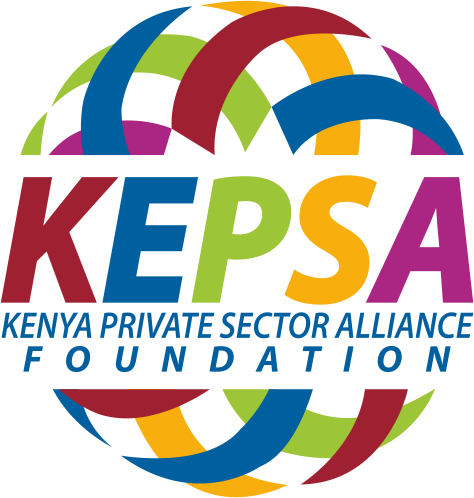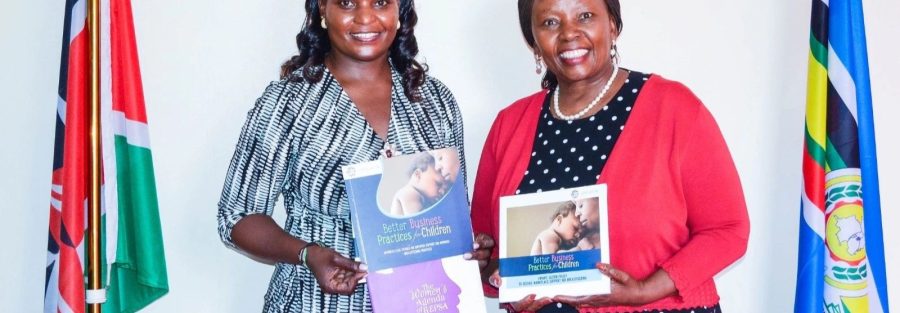On 12th November 2024, KEPSA Foundation Executive Director, Ms. Gloria Ndekei held a meeting with the President’s Advisor on Women Rights, Hon. Harriette Chiggai in her office. The aim of the meeting was to explore potential areas of collaboration in line with empowering women in vulnerable communities and creating investment opportunities for their improved economic growth and independence as aligned with the priorities of the two organizations.
Ms. Ndekei highlighted KEPSA Foundation’s priority areas, with a particular focus on Women, Youth, and Persons with Disabilities empowerment and Childcare. Ms. Ndekei underscored the importance of cottage industries for empowering women and youth to grow selected value chains.
She emphasized the Foundation’s commitment to enhancing opportunities in the textile, goat milk value chains, rabbit farming as well as growing sesame seeds and other high value foods.
Ms. Ndekei also spoke about the Better Business Practices for Children (BBPC) initiative, launched in partnership with UNICEF in 2010. This initiative began with 28 companies committing to establish lactation stations in the workplace in the year 2010, which was a significant step towards creating family-friendly business environments. The Foundation has continued to advocate for enabling policies, including legislation that supports the well-being of women and children.
Ms. Ndekei also noted that the Foundation will launch a hybrid ‘chama’ agenda, which will serve as a guideline for providing children’s nutrition topic as a priority for good parenting within women groups meetings.
Hon. Chiggai highlighted that the Office of the Women Rights Advisor, under the Executive Office of the President, has launched a Strategic Direction to accelerate gender parity across all sectors. The Gender Parity Accelerator aims to empower female-owned and -led MSMEs by improving access to economic opportunities, finance, investment, as well as digital skills and services. She emphasized her vision for establishing Public-Private partnerships to support cottage industries in value chains such as leather, beadwork, and goat and rabbit farming, particularly in Arid and Semi-Arid Lands (ASALs) with a focus on enhancing sustainability margins for women.
Hon. Chiggai also shared her office’s commitment to empowering women nationwide through key partnerships with various stakeholders. This includes initiatives to empower women in cooperatives, the provision of sanitary towels, and the establishment of a Gender-Based Violence (GBV) Kitty, facilitated through Public-Private partnership arrangements. She underscored the importance of a robust monitoring and evaluation framework to ensure that there is reliable data to support the widespread impact of women’s empowerment initiatives across the country.
Further discussions focused on establishing a strong partnership between the two offices, as the priorities are evidently aligned with the common goal of driving significant and sustainable women empowerment across Kenya.





